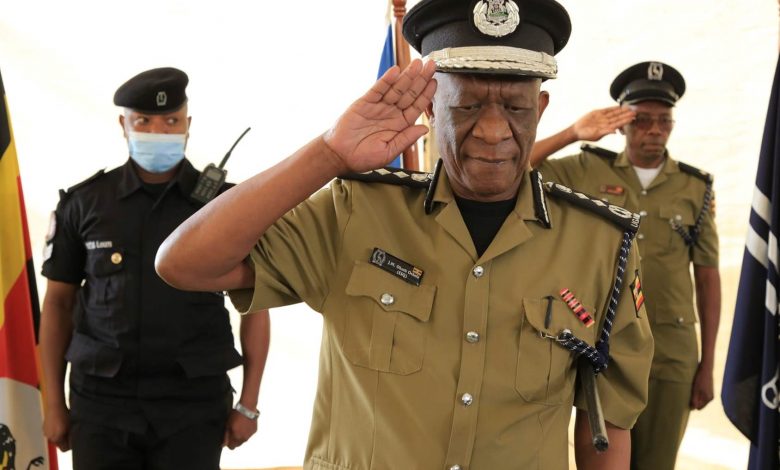What you didn’t know about former IGP Ochola
He replaced General Kale Kayihura. Immediately before his present assignment, Ochola served as the deputy inspector general of police, deputizing IGP Kayihura, the man he replaced.

Martin Okoth Ochola was a Ugandan police officer, who served as the inspector general of police (IGP) of the Uganda Police Force, the highest rank in that branch of Uganda’s government, effective 4 March 2018.
He replaced General Kale Kayihura. Immediately before his present assignment, Ochola served as the deputy inspector general of police, deputizing IGP Kayihura, the man he replaced.
Academic Background
He was born on 19 September 1958, in Agumiti village, Mulanda sub-county, West Budama County, in Tororo District. He attended Abweli Primary School, then Rock View Primary School, and Kisoko Boys Primary School, where he sat his primary leaving examinations. He attended Namilyango College, where he obtained his high school diploma.
He studied at Makerere University, the largest and oldest public university in Uganda, where he studied law. He graduated with a Bachelor of Laws degree in 1983. The following year, he obtained a postgraduate diploma in legal practice, from the Law Development Centre.
Career at Uganda Police
He went into private law practice, working as a legal assistant between October and December 1984, at the law firm of Owori and Company Advocates in Mbale Town, in the Eastern Region of Uganda. He then relocated to Kampala, Uganda’s capital city, where he worked as a legal assistant in Kampala City Council for three years.
He joined the Uganda Police Force in January 1988 and started a nine-month basic training. At that time, he was given the rank of a cadet assistant superintendent of police. Following that training, in February 1989, he was posted to Entebbe International Airport as the officer in charge of airport security.
From there, he served at Entebbe Police Station, Buganda Road Court, where he remained for three years. He was then posted to police headquarters as the acting assistant commissioner of police in the legal department. He was promoted to superintendent of police and later to senior superintendent of police.
In May 2001, he was appointed the deputy director of criminal investigations and remained in that position for seven years. In 2008, he was promoted to commissioner of police. That same year, he was confirmed as director of CID. In 2009, he was promoted to the rank of Assistant Inspector General of Police.
In August 2011, President Yoweri Museveni appointed him the deputy inspector general of police; Ochola served in that position until replacing Kale Kayihura as IGP and in turn deputizing Kayihura.
Nile Post reports that security analyst Freddie Egesa highlighted a perceived lack of scrutiny compared to Ochola’s predecessor, Kayihura, raising questions about the extent of the police chief’s accomplishments versus maintaining the status quo.
Egesa suggested that if Ochola is not granted another term, President Museveni should consider appointing a career police officer like Ochola to lead the force, emphasizing the importance of continuity and institutional knowledge.
Retired police officer Asan Kasingye offered a contrasting perspective, defending Ochola’s tenure and citing his significant contributions to upholding the dignity of the police force.
Kasingye underscored Ochola’s legal grounding as a lawyer, which has informed his administration’s adherence to the law.
In a similar vein, retired politician Waswa Lule underscored the critical nature of the police chief position, cautioning against prolonged vacancies and emphasizing the need for substantive leadership within the force.
As discussions surrounding Ochola’s term gain momentum, it becomes evident that the Uganda Police Force faces a delicate balancing act between maintaining law and order while safeguarding the rights and freedoms of citizens.







